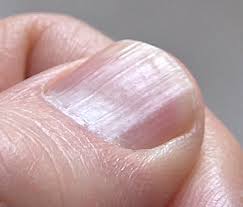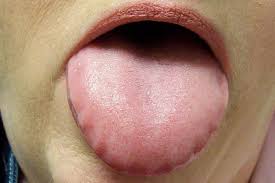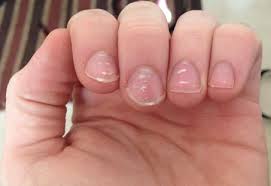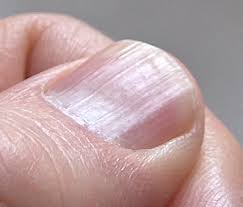 As an Ayurvedic practitioner, one of the most common issues I see time and time again is malabsorption of nutrients. In fact, I would estimate at least 75% of my clients show some signs of malabsorption, if not more. If you are not familiar with this phenomenon, this article will take you through not only what it is, but also some common causes, signs, symptoms, and how Ayurveda addresses this issue.
As an Ayurvedic practitioner, one of the most common issues I see time and time again is malabsorption of nutrients. In fact, I would estimate at least 75% of my clients show some signs of malabsorption, if not more. If you are not familiar with this phenomenon, this article will take you through not only what it is, but also some common causes, signs, symptoms, and how Ayurveda addresses this issue.
So what is Malabsorption exactly? Malabsorption is precisely as it sounds, a disorder that revolves around not absorbing your nutrients properly. This means that you are taking in healthy foods, but you are not absorbing the vital macro- and micro-nutrients such as proteins, fats, vitamins, or minerals that they contain. For example, one may be a regular meat eater, take an iron supplement daily, and still be suffering from iron-deficiency anemia. So, despite your efforts for getting a wide range of nutrients in your diet, your system is still deficient in certain areas causing fatigue, weakness, brittle hair and nails, lowered immunity, and so on.
Now that we know what malabsorption is, how can we tell if we are being affected by it? Luckily, there is a long list of common signs and symptoms for malabsorption, some objective (meaning you can physically see it) and others subjective (meaning you can feel it). The more signs and symptoms that you’re experiencing, the more likely you are to be suffering from this issue and, potentially, the more powerful the malabsorption may be.
Common Signs and Symptoms of Malabsorption
- Brittle nails and/or bones
- Dry or thinning hair
- A prominent line from the outer nostril down to the respective outer lip, even when not smiling (see picture #1 below)
- Teeth marks on the perimeter of the tongue (see picture #2 below)
- Longitudinal lines on the nails (see picture #3 below)
- White spots on the nails (see picture #4 below)
- Anemia
- Low energy
- Chronic fatigue
- Chronic digestion issues such as gas, bloating, hyperacidity, and indigestion
- Diarrhea and/or constipation
- Undigested food in the stools
- Oily stools (specific for malabsorption of fats)
- History of intestinal disorder (Crohn’s disease, ulcerative colitis, celiac disease, IBS, etc.)
Physical Signs of Malabsorption
 1. Nasolabial fold
1. Nasolabial fold
Prominent lines that run from the nostrils down to the outer lips are a clear sign of malabsorption. Here is a great example of this occurring (sorry, Obama!). Unfortunately this is a very common in many individuals. Click here to read a detailed report on the Ayurvedic facial analysis.

2. Teeth marks around the perimeter of the tongue.
Here is a picture of malabsorption lines on the outer edges of the tongue, revealing teeth imprints on the perimeter. The stronger the imprints, the more severe the malabsorption. Click here to read a detailed report on the Ayurvedic tongue analysis.
 3. Longitudinal lines on the nails.
3. Longitudinal lines on the nails.
Another common sign of Malabsorption are vertical lines on the nails. As you may guess, the deeper the grooves, the more severe the malabsorption. Click here to read a detailed report on the Ayurvedic nail analysis.
 4. White spots on the nails.
4. White spots on the nails.
You may have noticed white spots appearing on your nails from time to time. This is another sign of malabsorption and specifically relates to calcium, zinc, and/or magnesium. Click here to read a detailed report on the Ayurvedic nail analysis.
If you are experiencing a handful of these symptoms, you may be suffering from some level of malabsorption, especially if the symptoms are digestion related. Before we discuss treatment options for malabsorption, let us first detect the causes. After all, the first line of any Ayurvedic treatment should always be to remove the causes.
Common Causes of Malabsorption
- Improper or imbalanced digestion, a.k.a. vitiated Agni (number one cause!!)
- Excessive toxins in the GI tract, a.k.a. ama
- Stress, anxiety, or other emotional imbalance
- Intestinal disorder (Crohn’s disease, ulcerative colitis, celiac disease, IBS, etc.)
- Inflammation in the GI tract
- Intake of allergenic foods (dairy, soy, gluten, sugar, etc.)
- Improper Food Combining
- Parasites
- Dysbiosis (improper balance of gut flora)
- Chronic diarrhea or excessive bowel movements
- Certain medications including frequent use of antibiotics
- Thyroid disorder (hyper or hypo)
- Diabetes
- Excessive alcohol intake
- Excessive laxative use
- Family history (a predisposition but not necessarily a cause)
Although there is a long list of common causes, the main cause is, by far, impaired digestion. In fact, most of the following causes lead to impaired digestion, so typically an imbalanced Agni or digestive fire is almost always the main issue.
If we are not digesting our food properly, how can we be absorbing the nutrients properly?
This also means that although a food may be considered a “food of the Gods,” “superfood,” or any other cliche term out there, if it is causing you gas, bloating, constipation, loose stools, or anything in between, then unfortunately this superfood is not so super for YOU (yes, this includes smoothies and raw juices, too).
So, as you can imagine, the most important factor in the treatment of malabsorption will be to strengthen and balance the digestive fire (Agni). This includes the essential factor of finding out the underlying cause of the digestive issue (i.e. allergenic foods, toxins, stress, parasites), and treating all associated factors simultaneously. The more chronic the malabsorption, the longer the treatment process may be. Also, the stronger the imbalance, the more important it will be to follow the treatment protocol fairly precisely, especially in the beginning.
Since malabsorption has so many potential causes, I have provided a general list of treatment options for you to follow; however, they may not all pertain to your specific needs. Therefore, it is best to choose the recommendations that make the most sense to you. If your underlying causes are not so clear, you may need a more focused and specialized treatment protocol through an individual consultation with an Ayurvedic practitioner. Ayurvedic specialists are available worldwide and will provide you with a detailed treatment regimen specific to your needs. Until then, here are some recommendations to put into practice.
Ayurvedic Treatment Options for Malabsorption
1. Eat a simple diet of warm, well-cooked foods.
When there are telltale signs of a weak or imbalanced digestion, the best thing you can do is simplify. Eating a fairly consistent diet of well-cooked (yes, mushy) foods such as soups, broths, stews, kitchari, crock pot meals, stir-fry, oatmeal, porridges and the like, will give your fire a much-needed rest and, therefore, allow it to process through the old while taking in the new.
Alternatively, you should also be avoiding raw, cold, dry, and rough foods at this time, as these are among some of the hardest foods for your digestion. Of course, if your fire is robust and strong it is no problem, but when the fire is weak, raw foods can be too much for your gut to handle. This includes salads, raw juice, smoothies, crackers, rice cakes, dry toast, pretzels, and popcorn to name a few.
2. Limit meat consumption.
This may not be necessary for everyone dealing with malabsorption, but if you are suffering from a digestive issue, then meat should become an occasional meal for the time being. Meat, especially red meat and pork, take much longer to process and breakdown and often cause sluggishness, blockages, or obstruction in the GI tract when consumed too often. This becomes even truer when the meat is eaten later in the day.
Therefore, meat should be consumed mid-day only and should be limited to an average of 2-3 times a week, allowing at least one day in between meat consumption. If meat is eaten more often, the best way to consume it for your digestive fire is through a meat broth or crock pot stew (since the meat is easier to digest in this form).
3. Make sure you get a wide variety of colors in your diet each and every day.
A common (and expensive) mistake is relying on vitamins and supplements to get your daily nutrients. I have seen clients who take more than 30 supplements a day, and yet they are still suffering from a wide range of health issues. This is because our digestion is not strong enough to process all of these vitamins and supplements; instead of helping the issue, you are clogging the channels further and creating more toxins in your system.
In order to ensure you are getting your full range of nutrients and absorbing them properly, it is always best to go with colorful, whole food options. This means you will want to eat real fruits and vegetables, along with easy to digest options such as bone broth, meat broth, whole grains, legumes, and other healthy (preferably fresh, home-cooked) food types. Also, remember that the darker the color, the stronger the antioxidant potency. Think beets, dark leafy greens, blueberries, black grapes, carrots, sweet potatoes, red peppers, and other beautiful treats from Mother Nature.
4. Take a digestive aid before each meal.
When your digestion is in a weakened state, you not only need to change our diet and eat healthier but also focus on ways to rev up your fire during the healing process. Remember that even healthy foods can cause disruption if you are not digesting and absorbing them properly.
Therefore, it will be essential to simultaneously take some digestive aids, preferably directly before each meal (this helps to prepare the digestion for the food to come).
5. Fast one day a week.
If there are clear signs that your digestion and metabolism are not quite up to speed, a great way to give them a bit of a rest is to apply a fast one day each week for several weeks, depending on the severity of the issue. Ideally, you will also be choosing the same day each week to keep some consistency in the program. This should be planned ahead of time and set to a day that you do not have work, travel, or any strenuous activities planned.
Once you determine the day that works for you, then you can plan out the fast itself. The best fast for increasing the digestion in the warmer seasons will be to eat a small bowl of papaya for each “meal” and nothing else. During the colder months, this should be switched to mung (moong) broth made with some ginger and digestive spices. Warm to hot water should be taken often between “meals,” but teas, juices, and all other fluids should be avoided.
6. Perform a mild detox or Kitchari cleanse.
If your malabsorption issues are chronic or strong in potency, it may be needed to perform a mild cleanse or detox. In Ayurveda, we often do the Kitchari mono-diet cleanse while also taking in medicated ghee, detoxifying herbs, and elimination promoting herbs. This gives the digestion a break through the simple mono-diet while flushing out the system, clearing the channels, and igniting the digestive fire.
Read more on How to Perform a Kitchari Cleanse here.
7. Spice up your meals.
Another great way to make your food more digestible and nutrients more absorbable is to add some warming, digestive spices to your meals. The best options are ginger, turmeric, fennel, coriander, cumin, brown mustard seed, fenugreek, cinnamon, cardamom, cloves, and ajwain.
8. Drink a digestive tea between meals.
As we continue with the theme of revving up your fire, here is another common Ayurvedic remedy for this. Taking in a digestion-enhancing tea between meals will help you to process through the previous meal while also preparing the gut for the next. This should become a daily habit for the most noticeable results, especially if your malabsorption is a chronic issue.
The simplest and most classical digestive tea is the age-old ginger tea with lemon and honey. Other effective options include:
Recipes:
9. Reduce the stress in your life.
A huge cause of digestive issues involves too much stress. Stress not only causes hormonal imbalances (hormones regulate our digestion) and weight gain around the mid-section (which creates a sluggish metabolism), it also causes constriction throughout the entire body including the GI tract.
You can picture the GI tract as a canal where food and fluids are taken from one location to another. When we constrict this area, the canal becomes obstructed and things begin to back up. This backing up of food matter creates indigestion, fermentation, and leads to toxic accumulation. The toxins further clog the channels and create more pathology and chaos in the GI tract.
So, the more we can let things go and take some deep breaths throughout the day, the more space we will create in our system and the more freely our food will be able to flow through. If you’re dealing with a lot of stress in your job, relationship, or life, it is essential that you focus on reducing stress levels on a daily basis by performing some necessary self-care techniques.
Some Useful De-Stressing Tools Include:
- Ginger Baking Soda Baths
- Self-Oil Massage (Abhyanga)
- Daily walks outside
- Hiking or spending some peaceful time in nature
- Journaling
- Yoga
- Breathing Techniques
- Meditation
- Therapy (talk, sound, art, etc.)
- Reducing your workload
- Prioritizing your necessities
10. Promote healthy gut flora through probiotics and herbs.
If you suspect malabsorption and there is a history of antibiotics, toxins in the system, chronic stress, parasites, candida, or anything of the like, there is a good chance that you may be experiencing dysbiosis or an imbalance of gut flora. Once the healthy bacteria are weakened by any number of these common issues, the unhealthy bacteria can take over and cause chronic indigestion, toxins, and malabsorption.
To treat this issue, you can take in some yogurt, lassi, kefir, or other healthy probiotic drink on a daily basis for several weeks. You only need a small amount (2-4 Tbsp) after meals, 1-2 times daily. You should favor homemade yogurt as this is more beneficial than store bought. You should also avoid any fruit flavored yogurts as fruit and dairy should never be mixed together (this will cause further indigestion). Instead, favor plain, organic options and add a bit of honey and cinnamon if needed.
Try our Ayurvedic Spiced Lassi Recipe!
11. Treat parasites.
If parasites are suspected, this should be treated as soon as possible. You can do this by using the proper anti-parasitical herbs, performing a cleanse, eating an “anti-parasitical diet,” and performing some herbal enemas specific for treating parasites. This should also be done simultaneously with increasing the digestion and promoting healthy gut flora back into the system. Read the Causes, Symptoms, and Treatment for Parasites here.



I would like to know more on such topics. Thank you!
Thanks Anita! We hope to be writing more on this topic in the future, as it is such common issue! Please let us know if you ever have any questions:)
Namaste,
Danielle
Excellent information. Easy to understand and cures that are not too onerous.
Many thanks for putting this together.
Warmth
Martine
Thank you for taking the time to write these kind words Martine! Please contact us anytime you have any questions.
Namaste, Danielle
Dear Danielle,
How do you explain fodmap malabsortion? It has been more than a year and my bowel still cant digest fodmaps. I have been following an ayurveda treatment.
Could it just be a persoonsnature? So I am vata/kapha and I think they both have bad digestion. Does de bowel ever getel cured?
Hi Ro,
Thank you for writing in. I am sorry for the health issues you are currently experiencing. This can be very frustrating when trying to treat longterm conditions. Treatment can often take quite sometime, especially if the condition has been occurring for several years or longer. Ideally however, you should be seeing improvements as you continue treatment, even within the first month or two. If this is not occurring, you may want to seek another practitioner for further guidance.
Generally speaking you will want to focus on strengthening the digestive fire (Agni), flushing toxins, and reestablishing healthy bacteria in the GI tract. While in treatment, the diet will need to be strict in avoiding any of these intolerable foods, as the intake of them will create toxicity until they are able to be fully digested. These toxins will continue to reduce the digestive fire, clog the channels and further the malabsorption. I do believe that with time, patience, discipline and the proper treatment, the fodmap condition can be cured or at least highly manageable, leading to a better quality of life overall.
Many blessing to you!
Namaste,
Danielle
Hi,
You are excellent
Thank you for knowledge.
Good
Hi Gaurav,
Thank you so much for the kind words. I am glad you enjoy the content of our site. Please contact me anytime you have questions!
Namaste,
Danielle
Hello Daniell
Thanks for such a great site and great tips.
I have malosrrbtsi. I am a vita-pita and I am going to take a mixture of spices after a meal to improve digestion. At what intervals is it better to take these?
Thank you
Nutan
Hi Nutan,
Thank you for writing in! The spices can be taken with ghee or honey before each meal to help with absorption of nutrients. I would recommend taking 1/2 tsp, three times daily of the appropriate digestive spices for your body type. Alternatively, you can add 1/2 tsp of digestive spices sautéed in ghee to each meal. Either way, make sure to take in 1/2 tsp, three times daily for noticeable results. Taking Triphala at night and drinking CCF Tea between meals should help as well.
Namaste,
Danielle
A comprehensive and detailed
information , thank you
Thank you for the kind words Sreenu! I am so glad you enjoyed. Thanks for reading:)
Namaste,
Danielle
Very nicely explained and detailed information. Thank you so much for your time and effort to share this wonderful knowledge with others. God Bless You.
Hi Surbhi,
Thank you so much for your kind words. It means a lot to me to hear. Thank you for writing in and thank you for reading:) Many blessings to you!
Namaste,
Danielle
Amazing explanation. Thank you so much!
Hi Oz,
Thank you for writing in with your kind words. I am happy to hear you have found the article helpful. Please let me know if you have any questions and I will be happy to help!
Be well:)
Namaste,
Danielle
I am experiencing problems of malabsorption, but not entirely sure why. I do have a vascular condition, which might contribute by slowing down blood flow to my intestines. At any rate, no amount of fiber and fluid intake seems to hydrate my body. My hair becomes dry and breaks off in the middle of growing back from a previous loss. My nails have been brittle, skin rough and ashy. I experience long intermittent periods of slow bowel transit, resulting in hard stools. (I recently performed a self-enema, and took the entire day to recover.) A confirmed nodule on my thyroid gland might be causing symptoms, too, but doctors are not concerned about it. As I stated, nothing seems to help with improving my systemic dryness. I began taking a collagen supplement, along with extra L-lysine to prevent chronic mouth sores, using lots of moisturizers, including lotions and hair sprays consisting of distilled water and natural ingredients. I drink lukewarm filtered water and warm herbal teas by the quarts. Did I mention constant exhaustion and sleep problems? I am so frustrated that I cannot get a handle on my own health issues.
Hi Jacqueline,
Thank you for writing! I am sorry to hear of your struggles with your health. From your description, it does sound like an issue with your thyroid may be at play; however, more investigation would be needed to really discover the true cause(s) of your dryness, constipation, and malabsorption.
My best suggestion I could give you is to seek out a knowledgeable Ayurvedic practitioner to work one-on-one with. If you do not remove the cause(s) of these symptoms, it will not be possible to find relief from these issues. As you discovered, merely treating the dryness with moisturizers and extra water intake will not do any good if the cause is not removed.
I am sorry I cannot be of more help to you at this time. I feel a holistic practitioner will be more in-tune with your needs and will listen to your story more deeply than a Western doctor may do, especially if your test are coming back “normal” (and therefore they are not concerned). If you have feelings of unwell, then something is going on and this should be addressed before it snowballs into a more serious disorder.
I wish you the best on your journey!
Namaste,
Danielle
Thank You very much! I read carefully and understood clearly. I am suffering from malabsorpation, Should I eat bread(wheat). +9779804840900. binaybabastors@yahoo.com
Hi Binay,
Thank you for writing in with your question! If you suspect that you may have a sensitivity or intolerance to wheat, this would be a good food to avoid. Wheat can definitely cause inflammation, especially if it is in its refined form. If there is chronic inflammation in the GI tract, it is likely that your nutrients will not be absorbed properly.
If you are suffering from malabsorption, it seems like it may be beneficial to give up wheat for a few months and see if you notice some improvements. Of course, the diet (and lifestyle) overall may need to be looked into, as there may be other factors that are provoking the malabsorption as well.
Be well:)
Namaste,
Danielle
Very useful information. Thanks a lot to the writer
A wonderful and helpful article. I look forward to trying all of the teas. I’ve experienced malabsorption for quite a long time; and appreciate your article that explains the possible causes and remedies, which I’ll begin to explore and implement. Thanks so much.
Hi Margaret,
Thank you for writing in! I am glad you enjoyed the article and I hope it helps you in healing your symptoms of malabsorption. Let me know if any questions come up along the way!
Take it slow and be well:)
Namaste,
Danielle